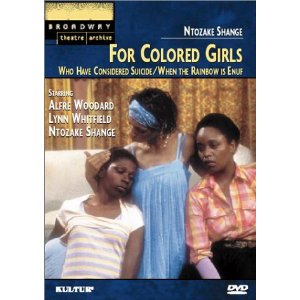 By Jae-Ha Kim
By Jae-Ha Kim
Chicago Sun-Times
August 15, 1986
“For Colored Girls Who Have Considered Suicide/When the Rainbow Is Enuf” is a beautiful and touching experience. It’s a play about being a black woman in today’s society, and it is done well by the Pegasus Players.
The play, which opened to good reviews last April at the Edgewater Presbyterian Church, is currently running at CrossCurrents. The intimate atmosphere of the club suits the production. When the actresses speak, they are not reciting words to an estranged audience. They’re so close, and they look and talk directly at you. You feel as if you’re sitting in on an open confession. Some members of the audience even venture to talk back to the actresses. This doesn’t faze them one bit.
The women are splendid in their roles. They cover subjects such as rape, virginity, murder and prejudice without being preachy or having chips on their shoulders. Each one sings, dances and acts her heart out. Each is differentiated from the others by the color of the scarf she wears. Everything else, including their dresses, is black and gray.
The wardrobe reflects the mood of the play, which is somber despite occasional bursts of laughter and song.
With little else than the accompaniment of a guitarist, the Pegasus Players bring to life their tales of black women who have been mistreated by their men and society. Glenda Starr Kelley sums it up when she says, “I couldn’t stand being sorry and colored at the same time. It’s so redundant in the modern world.”
Though the play gets off to a slow start, the momentum changes once the poetic flow of the women’s tales takes effect. The audience becomes mesmerized by the candor, wit and despair.
A showstopper occurs when all five women gather on stage to have a good time at the expense of their past and present lovers. The imitations of their boyfriends range from cocky to abusive, but never loving.
In a production such as this, where words convey more meaning than action, the proper accompaniment is crucial. The producers made a wise choice in Tomas de Utrera, a guitarist and flutist who plays with subtlety.
Throughout “For Colored Girls . . .” the actresses shed real tears and laughter. Because they are so convincing, and because we care about them so much, we find ourselves doing the same.





